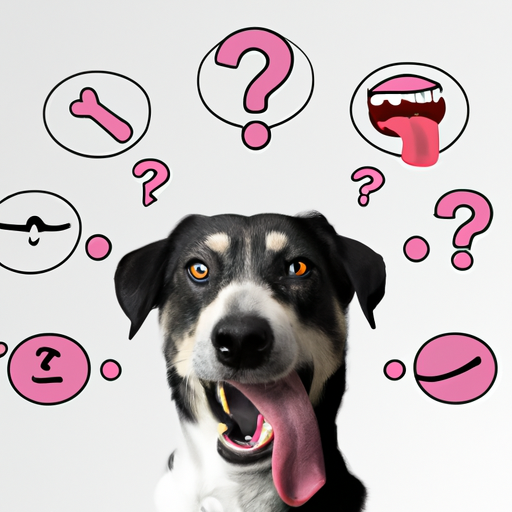If you’ve spent time around dogs, you might have noticed a curious behavior. They frequently lick their mouths, even when there’s no food in sight. This behavior may seem odd to us, but to our canine companions, it’s a natural and important form of communication. This article explores the reasons behind this behavior.
- Table of Contents
- Communicating with Other Dogs
- Expressing Submissiveness
- Dealing with Stress or Anxiety
- Indicating Nausea or Illness
- Cleaning Their Mouths
- Responding to Delicious Smells
-
Frequently Asked Questions
-
Key Takeaways
- Dogs lick their mouths for a variety of reasons related to communication, health, and sensory experiences.
- Understanding why dogs lick their mouths can help you better understand your furry friend’s behavior and emotional state.
- Consult a veterinarian if your dog’s mouth-licking behavior becomes excessive or is accompanied by other signs of illness.
Communicating with Other Dogs
Dogs use a variety of body language signals to communicate with each other, and mouth licking is one of these signals. A dog might lick its mouth to show another dog that it means no harm. This behavior is often seen when a dog is interacting with a new or unfamiliar canine companion. To understand more about how dogs communicate with each other, check out this comprehensive guide.
Expressing Submissiveness
In the dog world, displaying submissiveness can be an important strategy for avoiding conflicts. When a dog licks its mouth in the presence of a more dominant dog, it’s a way of saying, “I acknowledge your higher status.” For more on canine dominance and submission, this article from One Top Dog offers an in-depth look.
Dealing with Stress or Anxiety
Just like humans, dogs can experience stress and anxiety. Some dogs lick their mouths as a coping mechanism when they’re feeling anxious. If your dog is licking his or her mouth excessively, it could be a sign of anxiety. In such cases, it’s important to identify and address the source of the stress. You can find some useful tips for managing dog anxiety here.
Indicating Nausea or Illness
Sometimes, a dog licking its mouth can be a sign of nausea or other health problems. If your dog’s mouth-licking behavior is accompanied by other signs of illness, such as loss of appetite, vomiting, or lethargy, it’s a good idea to consult a veterinarian. This link offers more information on common dog illnesses.
Cleaning Their Mouths
Dogs often lick their mouths simply to clean them. After eating or drinking, a dog might lick his or her mouth to remove any remaining food or drink. This is a normal and healthy behavior.
Responding to Delicious Smells
Dogs have an incredibly keen sense of smell. If a dog smells something delicious, it might start licking its mouth in anticipation of eating. This is especially likely if the smell is coming from a favorite food or treat.
Frequently Asked Questions
-
Why does my dog lick his mouth constantly?
If a dog is licking its mouth excessively, it could be a sign of stress, anxiety, or health problems. Consult a veterinarian if you’re concerned about your dog’s behavior. -
Why does my dog lick his mouth after eating?
Dogs often lick their mouths after eating to clean them and remove any leftover food. -
Is it normal for dogs to lick their mouths?
Yes, it’s normal for dogs to lick their mouths for a variety of reasons, including communication, cleaning, and responding to smells.
By understanding the reasons why dogs lick their mouths, you can gain deeper insights into your furry friend’s behavior and emotional state. It’s just one of the many unique and fascinating ways that dogs communicate with the world around them.



